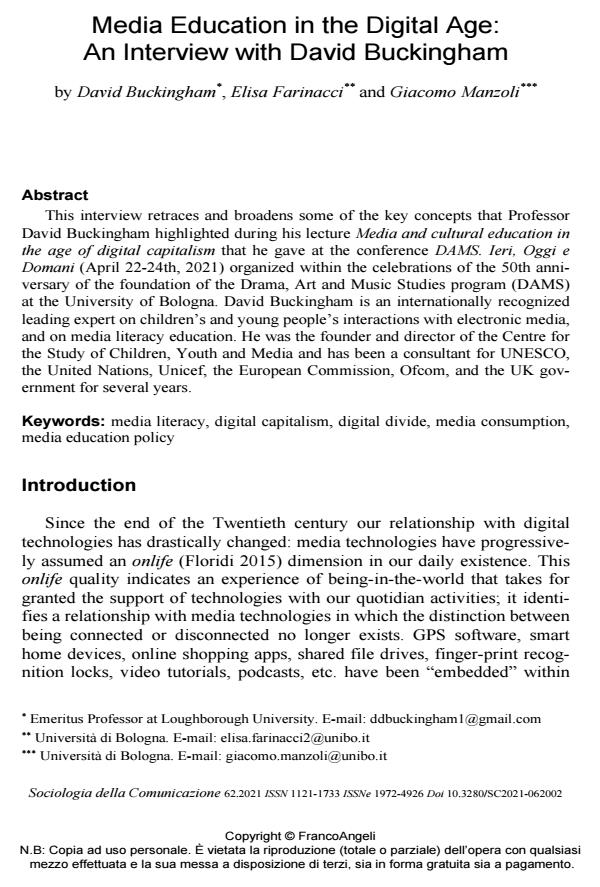Media Education in the Digital Age: An Interview with David Buckingham
Journal title SOCIOLOGIA DELLA COMUNICAZIONE
Author/s David Buckingham, Elisa Farinacci, Giacomo Manzoli
Publishing Year 2021 Issue 2021/62
Language English Pages 16 P. 17-32 File size 299 KB
DOI 10.3280/SC2021-062002
DOI is like a bar code for intellectual property: to have more infomation
click here
Below, you can see the article first page
If you want to buy this article in PDF format, you can do it, following the instructions to buy download credits

FrancoAngeli is member of Publishers International Linking Association, Inc (PILA), a not-for-profit association which run the CrossRef service enabling links to and from online scholarly content.
This interview retraces and broadens some of the key concepts that Professor David Buckingham highlighted during his lecture Media and cultural education in the age of digital capitalism that he gave at the conference DAMS. Ieri, Oggi e Domani (April 22-24th, 2021) organized within the celebrations of the 50th anniversary of the foundation of the Drama, Art and Music Studies program (DAMS) at the University of Bologna. David Buckingham is an internationally recognized leading expert on children’s and young people’s interactions with electronic media, and on media literacy education. He was the founder and director of the Centre for the Study of Children, Youth and Media and has been a consultant for UNESCO, the United Nations, Unicef, the European Commission, Ofcom, and the UK government for several years.
Keywords: media literacy, digital capitalism, digital divide, media consumption, media education policy
- Higher Education Learning Methodologies and Technologies Online Alessandra La Marca, Elif Gulbay, Ylenia Falzone, pp.471 (ISBN:978-3-031-29799-1)
David Buckingham, Elisa Farinacci, Giacomo Manzoli, Media Education in the Digital Age: An Interview with David Buckingham in "SOCIOLOGIA DELLA COMUNICAZIONE " 62/2021, pp 17-32, DOI: 10.3280/SC2021-062002